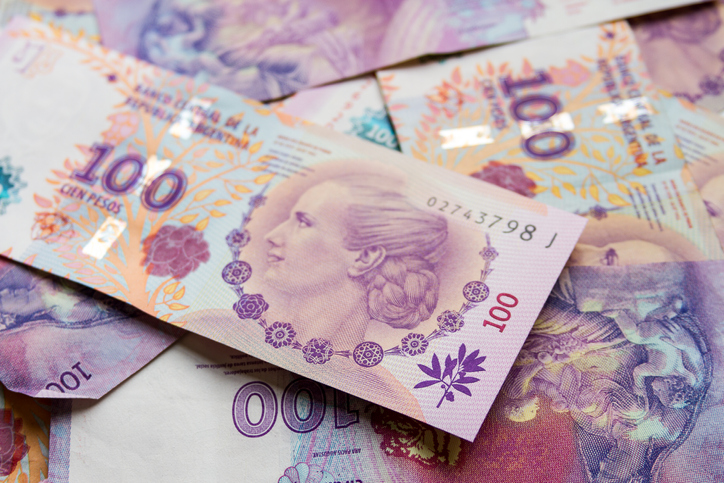Argentina’s black market peso fell almost 8% against the dollar on Monday after a senior official flagged the return of a so-called tourism tax on spending in dollars, a move to help prop up the local peso and help fill drained state coffers.
The peso was down 7.93% at 72.50 per U.S. dollar in the informal market, traders said, taking it around 20% away from the official spot rate, which has been held steady by strict capital controls imposed in September.
The move, alongside higher export taxes on farm products, underscores the policy shifts under the new administration of center-left Peronist Alberto Fernandez, who took office last week after beating out conservative Mauricio Macri.
Argentina’s new Cabinet chief, Santiago Cafiero, said over the weekend a bill would be sent to Congress to hike taxes on goods and services purchased in U.S. dollars. He said on local radio that this could be as high as 30%, amending earlier comments that it would be around 20%.
The tourism tax, which will apply to all expenses incurred using credit card abroad, is spurring Argentines to stock up on dollars, already scarce due to tight limits imposed on official purchases of greenbacks.
“People who can buy (dollars) are buying them now to spend them later,” one trader said.
The move would aim to stabilize the peso by stemming outflows of the currency that has lost more than 80% of its value over the past four years under former president Macri. The weak peso has in turn fanned high levels of inflation.
It is not clear when the new tax, which could hit Argentines traveling abroad as well as those buying overseas services, would come into effect, though Congress is expected to hold a series of extraordinary sessions to debate plans to revive the economy this month.
Argentina, in recession for much of the latter period of Macri’s government, needs to revive growth in order to service a mounting pile of debt payments, including to the International Monetary Fund, in order to avoid a damaging default.






